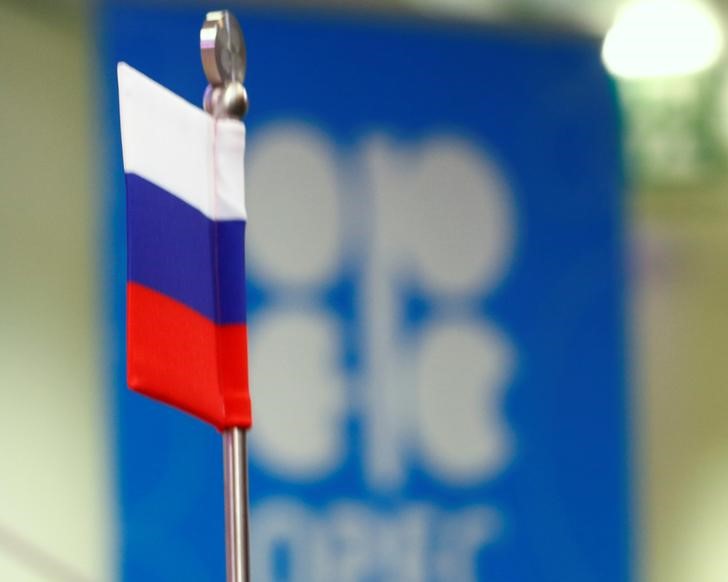Investing.com - Oil prices rose on Thursday ahead of an OPEC meeting where members are expected to agree on deeper output cuts aimed at supporting markets, while a sharp drop in U.S. oil inventories also underpinned prices.
Brent crude futures were up 52 cents, or 0.8%, to $63.52 a barrel by 7:41 AM ET (12:41 GMT). Brent rallied 3.6% on Wednesday.
West Texas Intermediate crude futures were up 19 cents to $58.61 a barrel. They settled 4.2% higher on Wednesday.
The Organization of the Petroleum Exporting Countries meets on Thursday in Vienna, while the expanded grouping known as OPEC+, which includes Russia and other producers, meets on Friday.
The OPEC+ group has been curtailing output since 2017 to counter surging production from the United States, now the world's biggest oil producer thanks to rapid growth in shale oil output.
Next year, rising production in other non-OPEC countries such as Brazil and Norway threatens to add to the global supply glut, even though U.S. output growth has tailed off in recent months.
"We expect a constructive outcome to today's meeting in terms of a prolongation of the deal, but are not yet convinced that a strong bullish surprise with a sizeable adjustment to the target level will really transpire," Vienna-based consultancy JBC Energy said in a note.
OPEC's effort to deepen cuts has also been driven by the group's de facto leader Saudi Arabia, which needs higher oil prices to support its budget revenue and provide a favorable backdrop to the pending initial public offering of state-owned oil giant Saudi Aramco. Pricing of the IPO is expected on Thursday.
Oil prices surged on Wednesday after the Energy Information Administration said U.S. crude inventories fell by a much larger than expected 4.9 million barrels last week.
Energy traders were also monitoring progress on resolving a 17-month-old Sino-U.S. trade war that has hit global growth and demand for oil.
U.S. President Donald Trump on Wednesday described trade talks with China as going "very well," a day after saying it could take until after next year's presidential election to complete an agreement.
--Reuters contributed to this report
